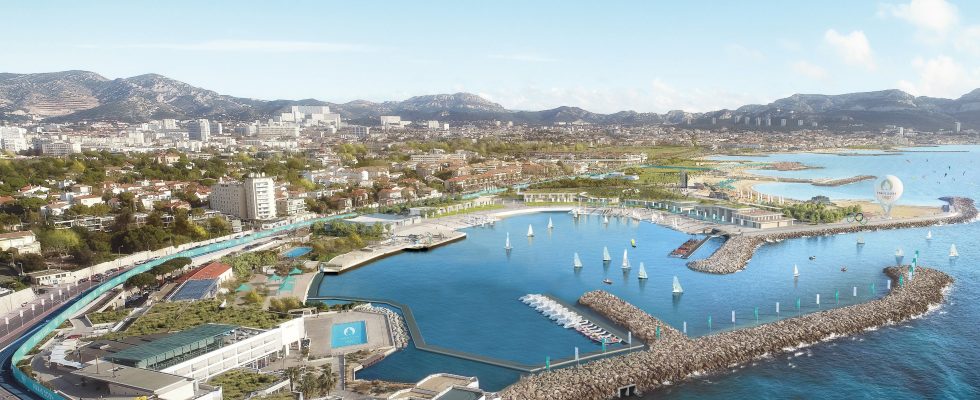“A capital of the sea that is still unaware of itself.” It is with this pretty formula that Marie-Dominique Champloy sums up the challenge for the Marseille city of hosting the sailing events in 2024. And for good reason: this former director of communication for the BPPC sailing bank co-founded the “Marseille capital of the sea” collective in 2019. In his eyes, the challenge is clear: the city must take advantage of the transformation of the Roucas-Blanc nautical base into an Olympic marina to open up new horizons. A message that also carries the municipality. “We are going to use it to democratize boating and the sea”, assures Hervé Menchon, deputy (EELV) in charge of marine biodiversity and coastal marine areas.
It’s not really won and the chosen one is well aware of it… “People don’t talk about it in the morning when they get up! They have many other concerns”, he admits. But the site, at the northern end of the Prado beaches, should gain visibility in the coming months. The Olympic flame is expected there on May 9, 2024, the day after its arrival in France via the Old Port. And the mayor, Benoît Payan, intends to take the opportunity to organize “a big popular party”.
Five new buildings on the program
Under the city’s contracting authority, work on the marina, estimated at 44 million euros – including 10 from Marseille – is already well advanced, a large part of the equipment having been delivered by Solideo (Olympic works delivery company) for the test event which was held from July 7 to 16, 2023. By the end of the year, five new buildings will be erected around the basin to house the municipal sailing, spaces for educational supervision and environmental awareness, as well as the Pôle France de Voile, installed in its new premises since February.
“Revival”
After the 2020 municipal elections won by the left, “the city first put this development project on hold” to ensure that its value would be highly environmental”, recalls Hervé Menchon. An ecological concern that has had an impact on maritime works in particular. “Initially, the project was to de-silt the basin during the period of the Games. We opted for a complete cleaning and revitalization plan”, details the elected official. The dykes were drilled in particular to promote reoxygenation, avoid re-silting and create fish “nurseries”.
A healthy body of water which, after the Games and the final works, will have to be opened up to as many people as possible. From 2025, the municipality promises to double the offer of nautical courses for young people and people with disabilities, while opening up to emerging practices, such as windfoil and kitesurfing. On the school side, the objective is to offer each schoolchild a first experience of the sea.
A place of maritime acculturation
In 2024, a call for projects will also be launched for associations, in order to reserve a place for them on the site. The “Marseille capital of the sea” collective has already found its new quarters, which it will unveil by the start of the school year in September. “It will be a place of maritime acculturation, of convergence between land and sea, between rich and poor, because Marseille breathes its maritime history and no one knows it!” enthuses Marie-Dominique Champloy. The association is also working, with public and private actors, to create a “year of the sea” in 2025 to strengthen the maritime destiny of the Marseille city. Far beyond the Games.
An article from the special issue of L’Express “The new territories of the Olympic Games”
